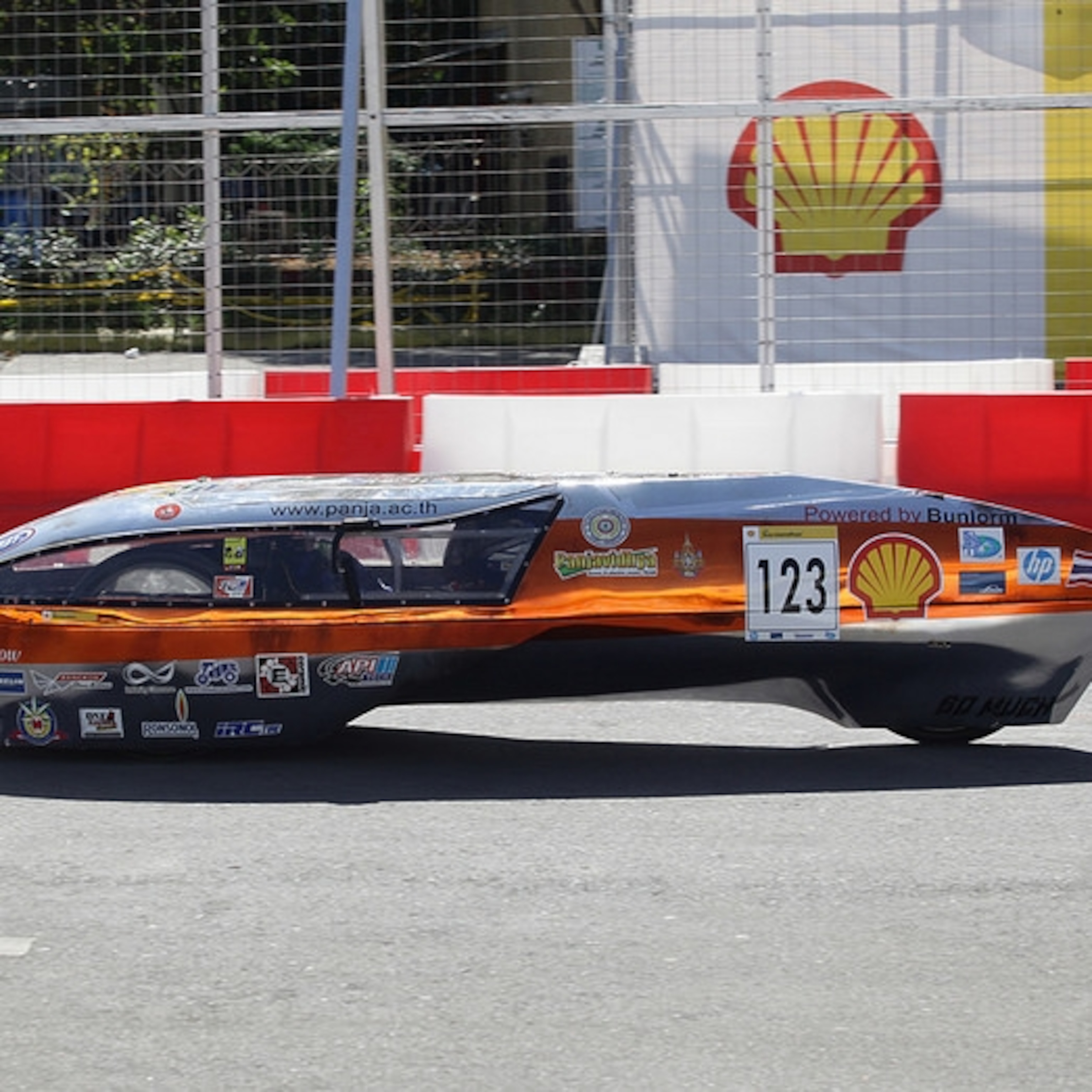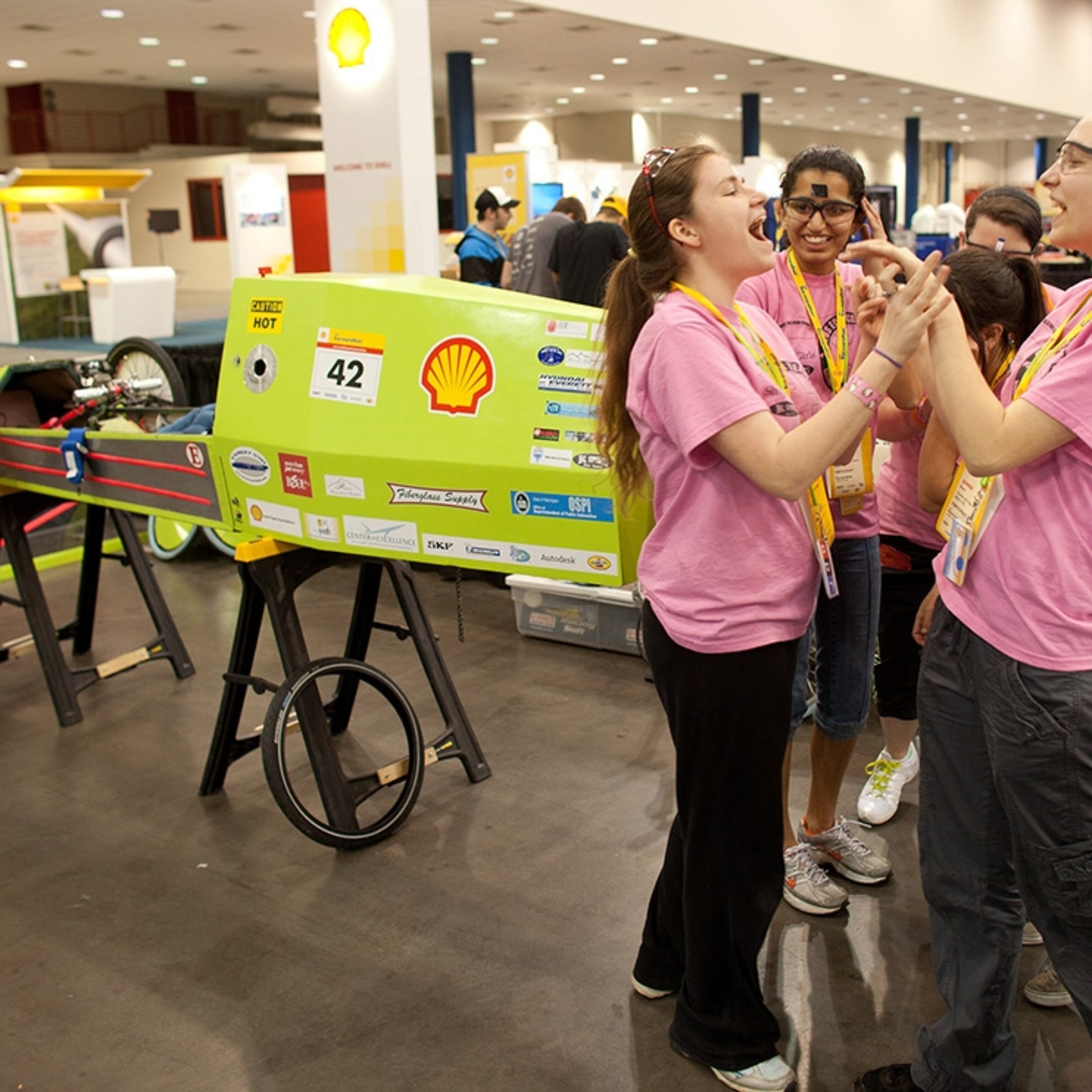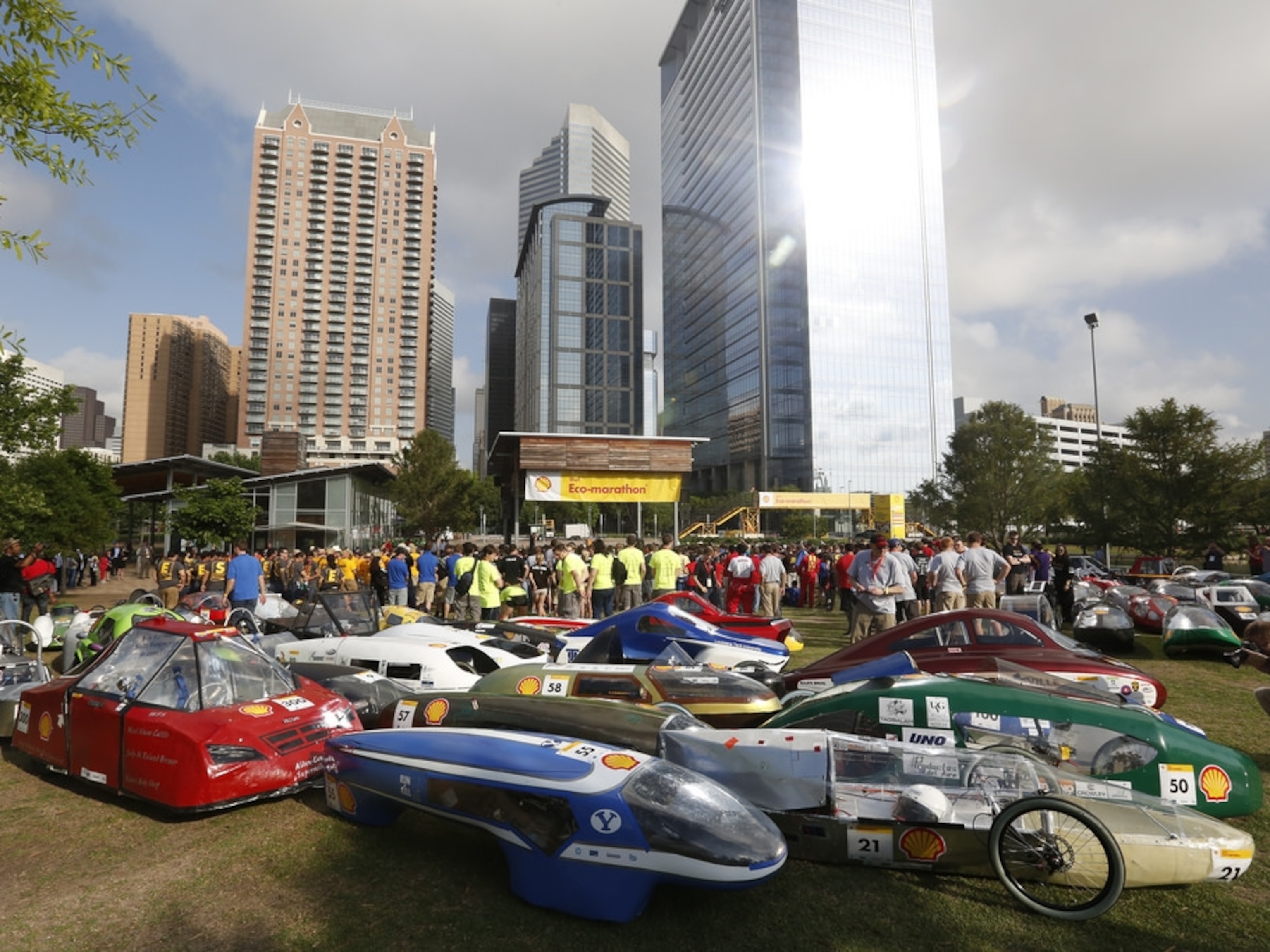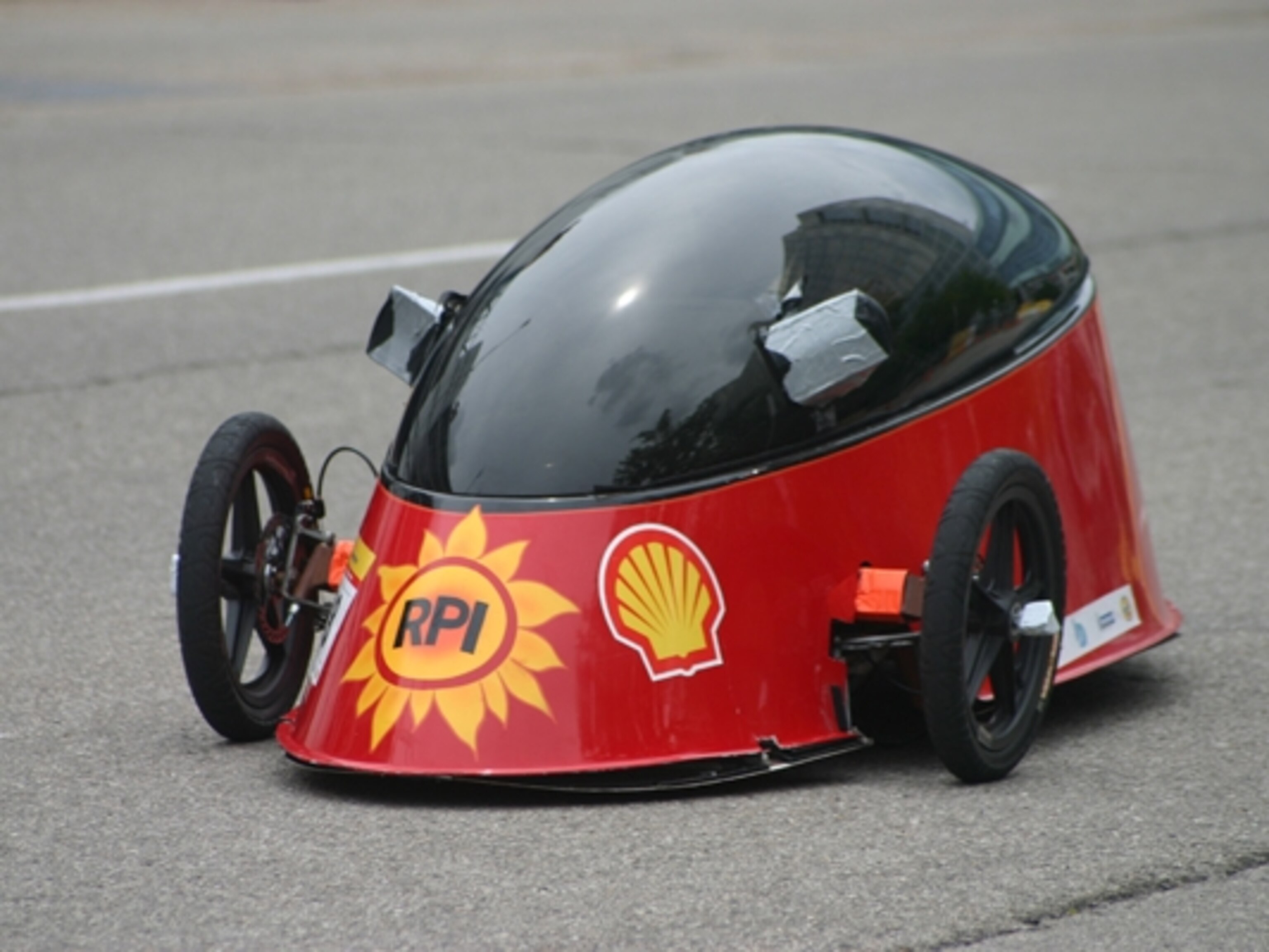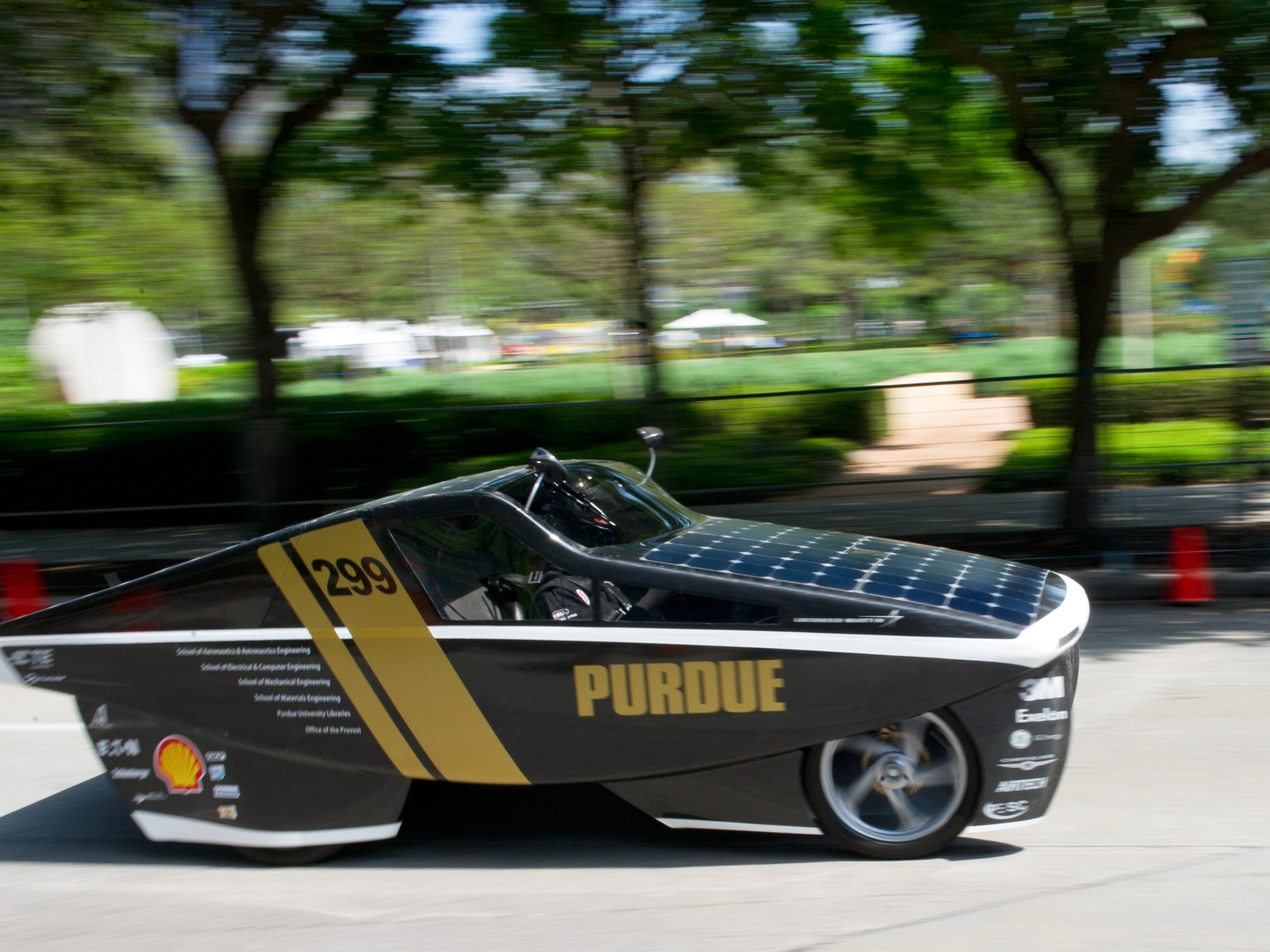
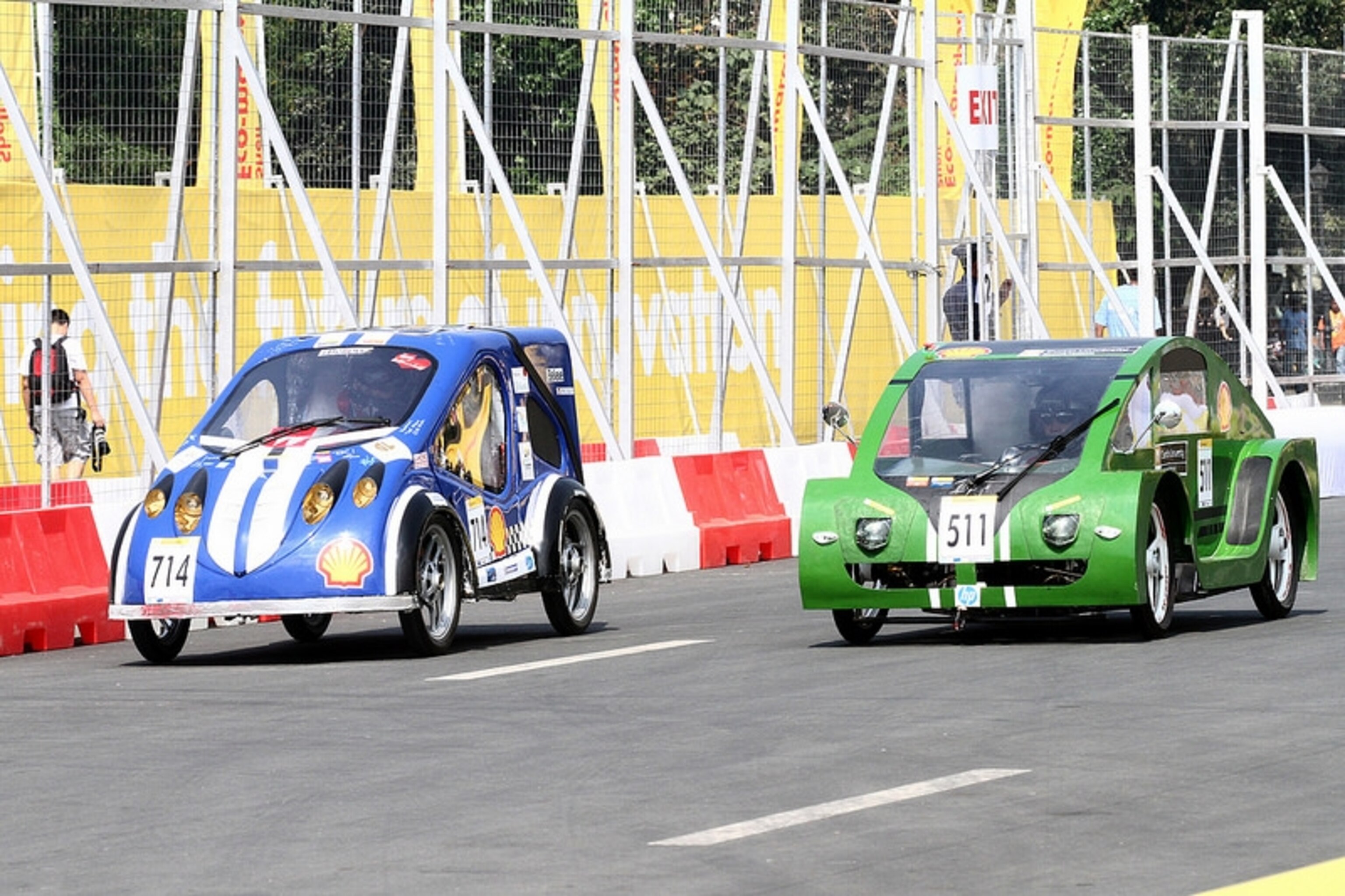
In Manila, Students Race for Fuel Efficiency at Shell Eco-marathon Asia 2014
More than 100 futuristic vehicles built by students from Asia and the Middle East are competing this weekend on the streets of Philippine capital of Manila in a race for fuel efficiency.
In a nation that has had more than its share of woe over the past year, with difficult recovery efforts continuing in the central provinces after Super Typhoon Haiyan, Shell Eco-marathon Asia 2014 offered a chance to celebrate youth potential for innovation, engineering, and problem-solving.
“I want to tell you that you have the most powerful automobiles in the world,” said Ramon Jimenez, secretary of tourism for the Philippines, at the opening ceremony Friday. “No machine is more powerful than something that brings us to the future.
“We only have one request,” he added. “As you race, take the fun of the Philippines into the future as well.” Manila City Mayor Joseph Estrada also was on-hand to greet students and wave the opening flag.
Some 105 teams from universities, colleges and technical institutes from 15 countries are racing in Manila, in a competition to design, build, and drive the most fuel-efficient vehicle. It is the fourth scheduled year of the Asia event, and the first time that it is being hosted in the Philippines. (See previous Shell Eco-marathon coverage.)
Kuala Lumpur, Malaysia was the previous host, but last year’s competition was cancelled due to air quality problems caused by last summer’s haze crisis in southeastern Asia. The move to Manila had been planned before the problems in Kuala Lumpur, however, designed to coincide with Shell’s* 100th year of operations in the Philippines this year. The weather in Manila was fair and sunny and expected to be good throughout the competition weekend.

“This event is a good example of bringing together innovative, resourceful and creative students from Asia to come up with the most fuel and cost-efficient vehicles,” Roberto Kanapi, general manager of Shell Eco-marathon Asia, told National Geographic. “It also reminds us to think about sustainable solutions to the world’s energy challenge.”
This year’s Eco-marathon Asia is designed to test the boundaries of fuel efficiency in an urban setting by using public roads of Manila, a city of 12 million people. Previously, the Asia race was held on Sepang International Circuit in Kuala Lumpur, but in this year’s competition vehicles will run on a more realistic stage, facing real-world city road surface challenges and tighter corners. Shell Eco-marathon Europe has been held on the city streets of Rotterdam in recent years, while Shell Eco-marathon Americas has been taking place in the urban center of Houston, Texas. Shell first began hosting student Eco-marathon competitions in France in 1985.
The city circuit drawn around the historic Luneta Park in Manila, also known as Rizal Park, after peaceful reform activist Dr. Jose Rizal, whose execution in the square in 1896 helped to spark the Philippine revolution. According to the race organizers, the street circuit reflects the objective of working better collectively on future technologies and energy and making mobility smarter for everyday use.
Students must run ten laps around a rectangular track with a distance of 1.2 kilometers (0.75 mile) per lap. A slight majority of the teams use internal combustion engines, but nearly 50 percent chose to propel their vehicles with alternative energy and fuels, including plug-in batteries, ethanol, hydrogen fuel cells, “fatty acid methyl ester,” or biodiesel, and natural-gas-to-liquid “clean” diesel fuel supplied by Shell.
Registered with the biggest number of teams is Indonesia with 18 followed by Malaysia and the Philippines. They will be racing alongside students from universities, colleges and technical institutes across 15 countries, including Lebanon, Pakistan, Qatar and United Arab Emirates.
“Students are really quite incredible in showing innovation, their resourcefulness and ingenuity to come up with the most fuel and cost efficient vehicles,” said Andy Norman, Shell’s vice president of media relations during a press briefing.
“It is just amazing what they have done to create the technology that they bring to achieve and give solutions to future energy demands,” said Shell Chief Financial Officer Simon Henry.
Student teams can participate in prototype or urban concept categories. The prototype category showcases the most aerodynamic and fuel-efficient vehicle possible. It mainly focuses on maximizing fuel-efficiency through innovative design elements, such as drag reduction. On the other hand, the urban concept category focuses on desiging and building fuel-efficient vehicles that would be road-worthy or street-legal. These vehicles are closer in appearance to the higher-mileage cars seen on roads today.
During the three-day race, off-track performance in creativity, safety, design and marketing, as well as perseverance, team spirit and eco-design will also be recognized. Winners and runners up will bring home prize money $2,000 and $1,000 in both Prototype and UrbanConcept categories.
Melchor Aguirre, a Filipino mechanical engineering student who is the team leader of Manila’s De La Salle University Eco-Car Team said he and his teammates were inspired to join the race to highlight the future energy challenge.
“ Our aim is to enjoy our participation at the Eco-marathon, at the same time show our innovative ideas, design and thinking about a fuel-efficient vehicle,” Aguirre said, while his team was preparing its electric and solar-powered car for the race.
Eco-marathon Asia 2014 also featured a business forum, Powering Progress Together, where more than 300 delegates from the government, business and civil society gathered and discussed both the implications of and potential solutions for the world’s food, water, and energy resource challenges. (See related, “Building Greater Resilience Crucial in Creating Sustainable Growth for Asia.”)
Imelda V. Abano, founder and president of the Philippine Network of Environmental Journalists, is reporting from Manila.
*Shell is sponsor of National Geographic’s Great Energy Challenge initiative. National Geographic maintains autonomy over content.
You May Also Like
Go Further
Animals
- Octopuses have a lot of secrets. Can you guess 8 of them?
- Animals
- Feature
Octopuses have a lot of secrets. Can you guess 8 of them? - This biologist and her rescue dog help protect bears in the AndesThis biologist and her rescue dog help protect bears in the Andes
- An octopus invited this writer into her tank—and her secret worldAn octopus invited this writer into her tank—and her secret world
- Peace-loving bonobos are more aggressive than we thoughtPeace-loving bonobos are more aggressive than we thought
Environment
- Listen to 30 years of climate change transformed into haunting musicListen to 30 years of climate change transformed into haunting music
- This ancient society tried to stop El Niño—with child sacrificeThis ancient society tried to stop El Niño—with child sacrifice
- U.S. plans to clean its drinking water. What does that mean?U.S. plans to clean its drinking water. What does that mean?
- Food systems: supporting the triangle of food security, Video Story
- Paid Content
Food systems: supporting the triangle of food security - Will we ever solve the mystery of the Mima mounds?Will we ever solve the mystery of the Mima mounds?
History & Culture
- Strange clues in a Maya temple reveal a fiery political dramaStrange clues in a Maya temple reveal a fiery political drama
- How technology is revealing secrets in these ancient scrollsHow technology is revealing secrets in these ancient scrolls
- Pilgrimages aren’t just spiritual anymore. They’re a workout.Pilgrimages aren’t just spiritual anymore. They’re a workout.
- This ancient society tried to stop El Niño—with child sacrificeThis ancient society tried to stop El Niño—with child sacrifice
- This ancient cure was just revived in a lab. Does it work?This ancient cure was just revived in a lab. Does it work?
Science
- The unexpected health benefits of Ozempic and MounjaroThe unexpected health benefits of Ozempic and Mounjaro
- Do you have an inner monologue? Here’s what it reveals about you.Do you have an inner monologue? Here’s what it reveals about you.
- Jupiter’s volcanic moon Io has been erupting for billions of yearsJupiter’s volcanic moon Io has been erupting for billions of years
- This 80-foot-long sea monster was the killer whale of its timeThis 80-foot-long sea monster was the killer whale of its time
Travel
- This town is the Alps' first European Capital of CultureThis town is the Alps' first European Capital of Culture
- This royal city lies in the shadow of Kuala LumpurThis royal city lies in the shadow of Kuala Lumpur
- This author tells the story of crypto-trading Mongolian nomadsThis author tells the story of crypto-trading Mongolian nomads
